Senior diplomat: Iran to use ‘all means’ to back Hezbollah if Lebanon attacked
A senior Iranian diplomat has warned Israel against launching a war on Lebanon, saying the Islamic Republic and all resistance groups in West Asia will support the Lebanese resistance movement Hezbollah in case of such military aggression.
Kamal Kharrazi, the head of Iran’s Strategic Council on Foreign Relations, told British daily newspaper the Financial Times in an interview that Israel’s offensive against Lebanon will trigger a regional war in which Tehran and all forces of the Axis of Resistance will throw their weight behind Hezbollah by “all means”.
Iran is “not interested” in a regional war, he said, urging the US to put pressure on Israel to prevent further escalation.
When asked if Iran would support Hezbollah in the event of a full-blown conflict, Kharrazi said, “All Lebanese people, Arab countries and members of the Axis of Resistance will support Lebanon against Israel.”
“There would be a chance of expansion of the war to the whole region, in which all countries including Iran would become engaged,” he said in the interview. “In that situation, we would have no choice, but to support Hezbollah by all means.”
“The expansion of war is not in the interest of anyone — not Iran or the US.”
Since early October last year, Hezbollah and Israel have been involved in a series of deadly clashes. These confrontations were initiated after the Tel Aviv regime launched a genocidal assault on the Gaza Strip following a surprise operation by the Palestinian Hamas resistance group.
Hezbollah has vowed to maintain its retaliatory strikes as long as the Israeli regime continues its Gaza war, which has resulted in the deaths of at least 37,900 Palestinians, predominantly women and children, and left 87,060 others injured.
Hezbollah officials have repeatedly said they do not want a war with Israel, but if it happens they are ready.
Iran’s presidential election, nuclear program
Commenting on the Iranian presidential race and the country's foreign policy, Kharrazi said while there are “some differences” between the approaches of the candidates, “the overall foreign policy strategy” is determined by Leader of the Islamic Revolution Ayatollah Seyyed Ali Khamenei and would remain the same.
“If they (Western countries) decide to cooperate, we are ready for cooperation”, Kharrazi said.
The Islamic Republic would be willing to hold indirect negotiations with Washington about Tehran’s nuclear program under a new administration, if it would lead to the US rejoining the 2015 Iran deal signed with world powers, officially known as the Joint Comprehensive Plan of Action (JCPOA), he said.
“We are not for building nuclear weapons,” Kharrazi said, citing a fatwa (Islamic decree) issued by Ayatollah Khamenei in 2003 banning the development of such munitions.
He said that if the West triggered “snapback” provisions to re-impose UN sanctions lifted when Tehran signed the JCPOA, in response to Iran’s continued expansion of its program, “there would be a severe reaction from Iran in terms of changing its nuclear strategy”.
“Up to now, we have not decided to go further than 60-percent enrichment,” he said. “But we have been trying to expand our experience by using different machines and different set-ups.”
Ukraine conflict
Elsewhere in his remarks, Kharrazi pointed to the Ukraine war and said Tehran is neutral in the conflict. He said Iran sold drones to Russia prior to the war.
He roundly dismissed Western allegations that Tehran could sell missiles to Moscow. “There have been such accusations, but it is not true.”
However, he said, there was “no obstacle between Iran and Russia for arms deals.” Tehran was in negotiations to buy Russian fighter jets, Kharrazi said. “We are due to sign a comprehensive strategic agreement with them in the near future.”
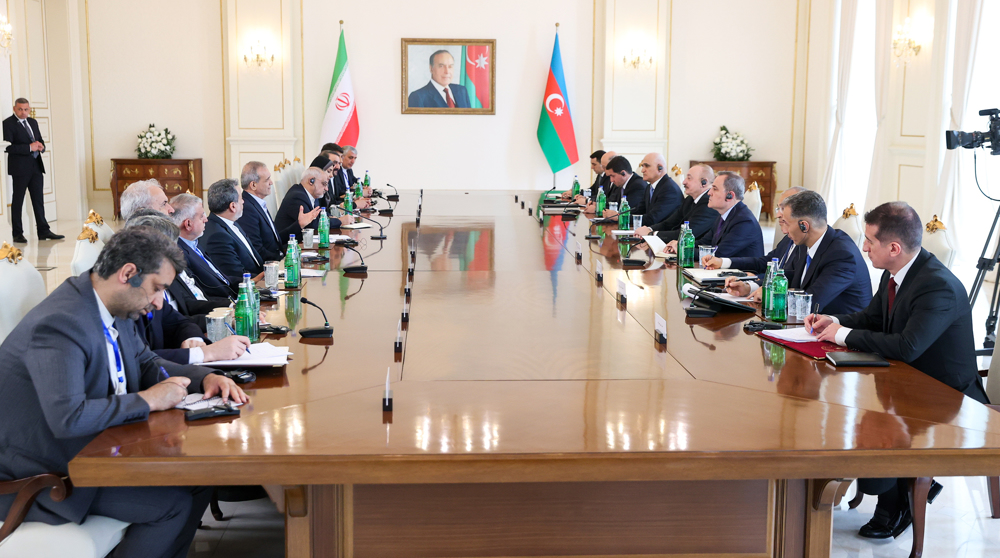
Pezeshkian visits Baku as Iran, Azerbaijan look to strengthen ties
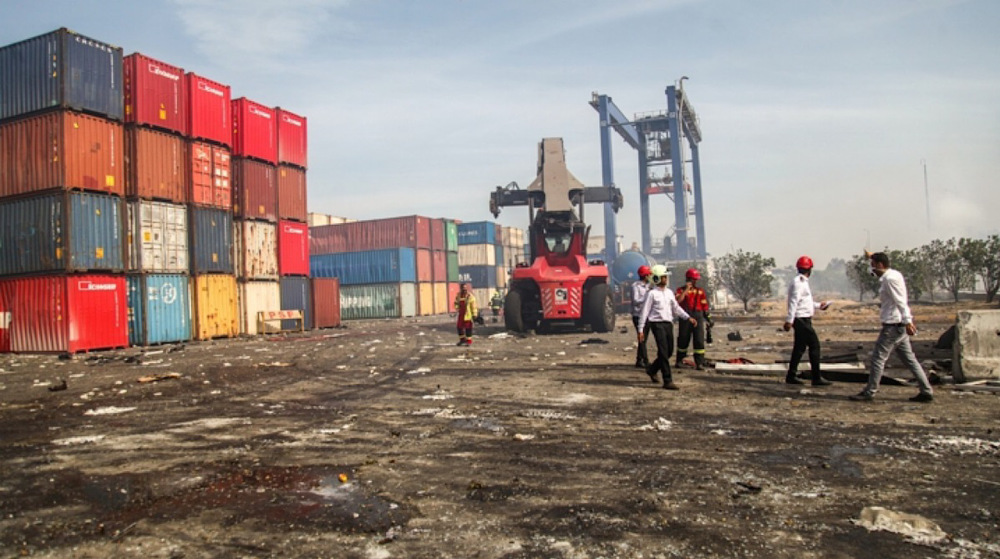
Death toll from Iran's southern port blast rises to 46 with over 1,000 injured
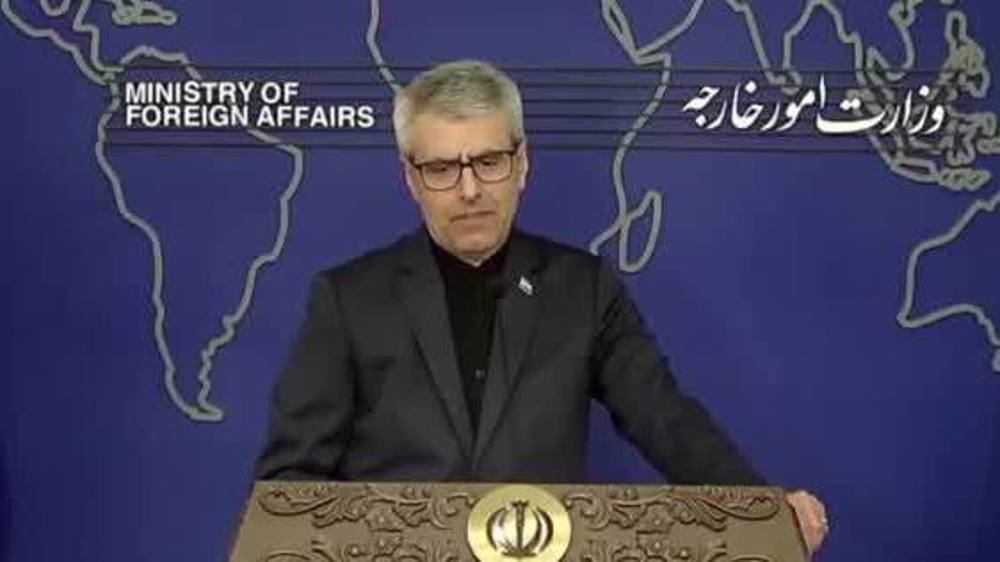
Enrichment on Iran’s soil, meaningful sanctions removal ‘red lines’ in talks with US: Spox
Hamas welcomes ICJ hearings on Israel’s humanitarian obligations towards Palestinians
Biden officials refrained from exerting pressure on Israel for Gaza ceasefire: Report
Sheikh Qassem: Hezbollah fully committed to ceasefire despite Israeli violations
VIDEO | Press TV's news headlines
Euro-Med: At least 94% of those killed in Gaza are civilians
VIDEO | Expo 2025 in Tehran showcases Iran trade, investment opportunities
VIDEO | Fresh US airstrikes target more Yemeni civilians
UN: US strikes in Yemen pose growing risk to civilians


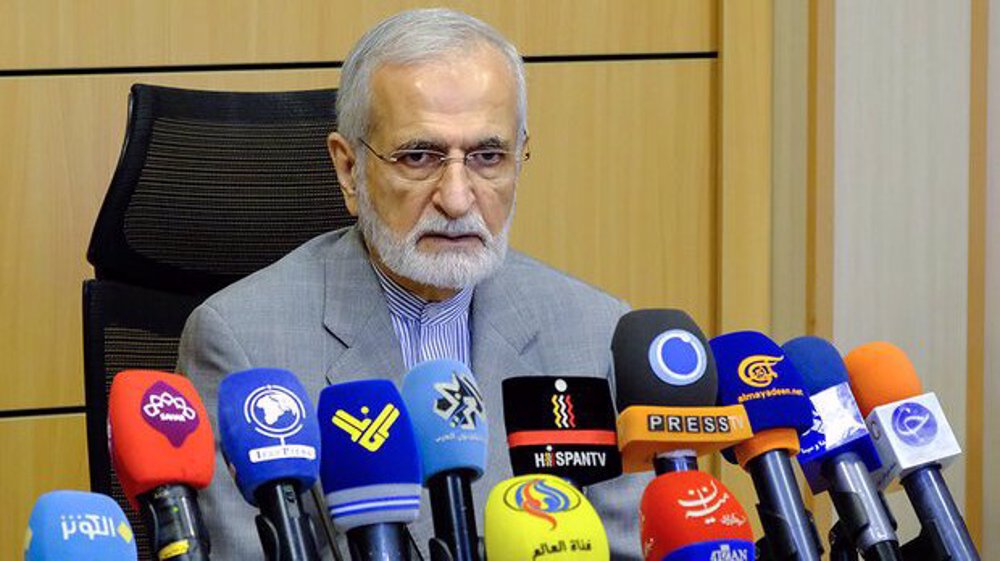
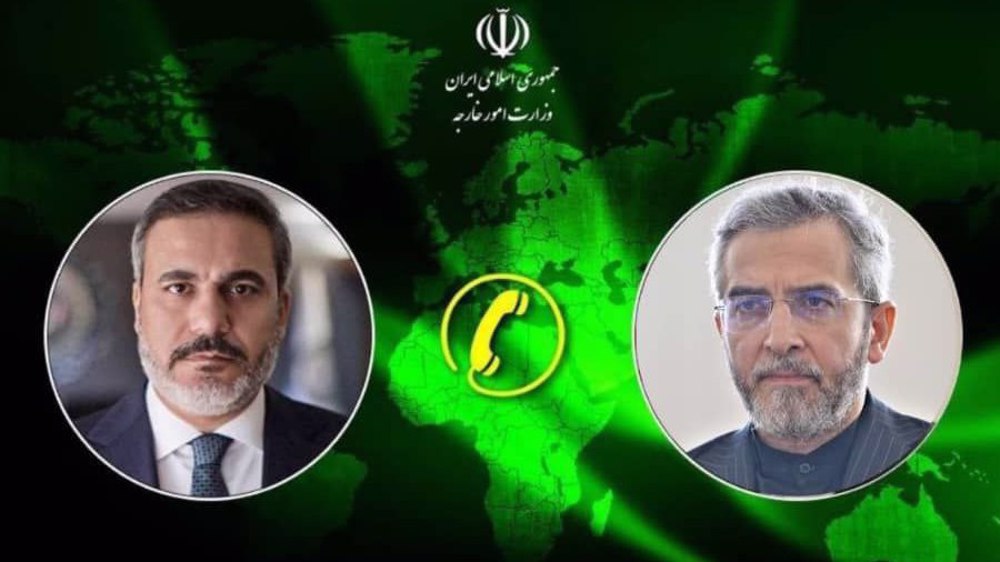
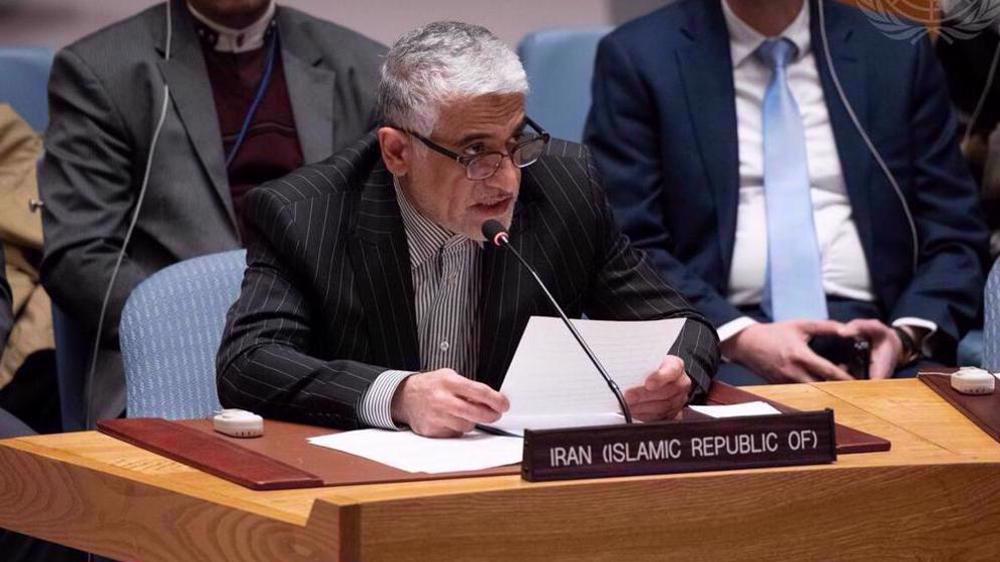




 This makes it easy to access the Press TV website
This makes it easy to access the Press TV website